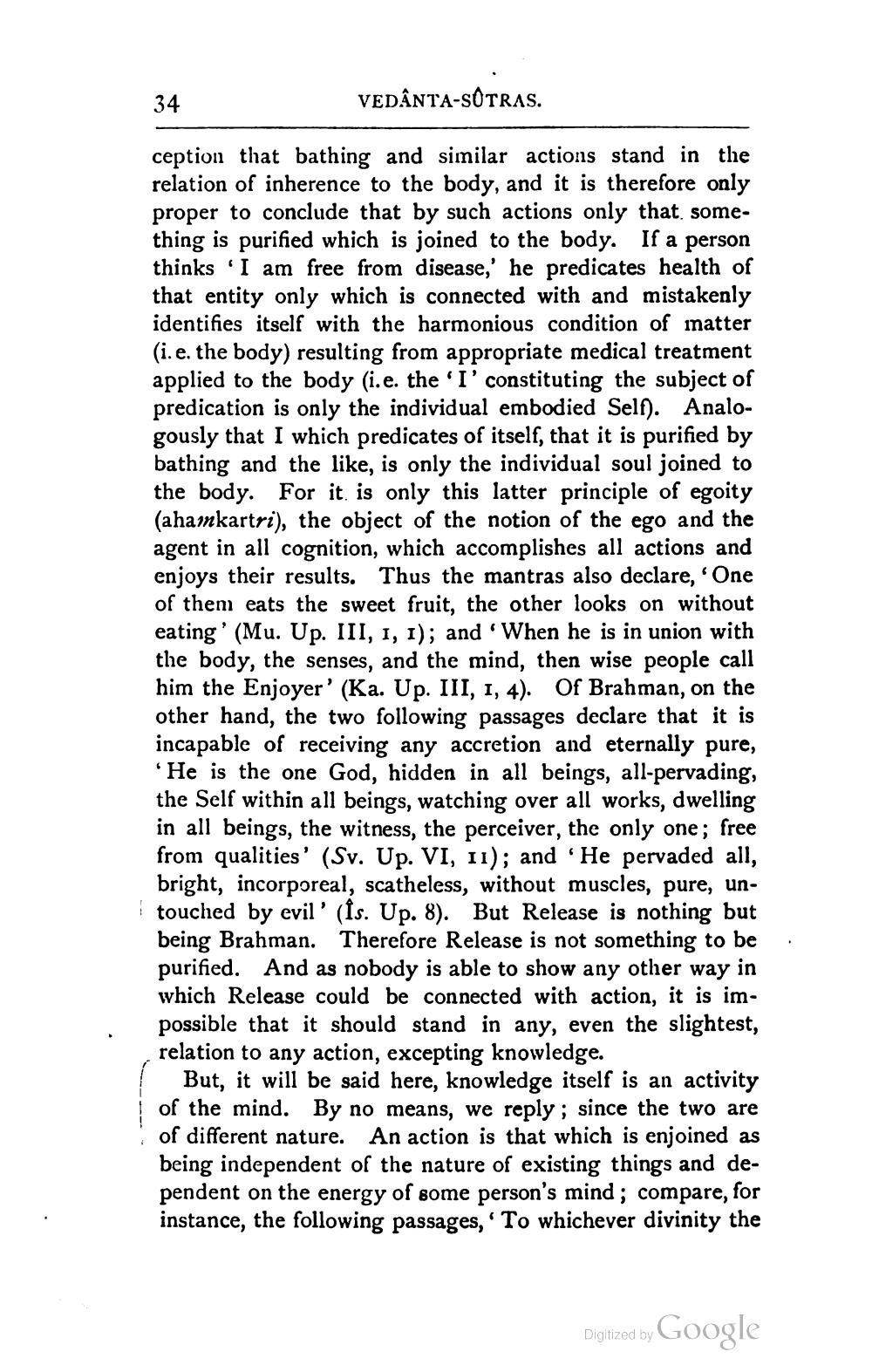________________
34
VEDÂNTA-SOTRAS.
ception that bathing and similar actions stand in the relation of inherence to the body, and it is therefore only proper to conclude that by such actions only that, something is purified which is joined to the body. If a person thinks 'I am free from disease,' he predicates health of that entity only which is connected with and mistakenly identifies itself with the harmonious condition of inatter (i.e. the body) resulting from appropriate medical treatment applied to the body (i.e. the 'I' constituting the subject of predication is only the individual embodied Self). Analogously that I which predicates of itself, that it is purified by bathing and the like, is only the individual soul joined to the body. For it is only this latter principle of egoity (ahamnkartri), the object of the notion of the ego and the agent in all cognition, which accomplishes all actions and enjoys their results. Thus the mantras also declare, 'One of them eats the sweet fruit, the other looks on without eating' (Mu. Up. III, 1, 1); and 'When he is in union with the body, the senses, and the mind, then wise people call him the Enjoyer' (Ka. Up. III, 1, 4). Of Brahman, on the other hand, the two following passages declare that it is incapable of receiving any accretion and eternally pure, 'He is the one God, hidden in all beings, all-pervading, the Self within all beings, watching over all works, dwelling in all beings, the witness, the perceiver, the only one; free from qualities' (Sv. Up. VI, 11); and 'He pervaded all, bright, incorporeal, scatheless, without muscles, pure, untouched by evil' (is. Up. 8). But Release is nothing but being Brahman. Therefore Release is not something to be purified. And as nobody is able to show any other way in which Release could be connected with action, it is impossible that it should stand in any, even the slightest, relation to any action, excepting knowledge.
But, it will be said here, knowledge itself is an activity of the mind. By no means, we reply; since the two are of different nature. An action is that which is enjoined as being independent of the nature of existing things and dependent on the energy of some person's mind; compare, for instance, the following passages,' To whichever divinity the
Digitized by
Digized by Google




